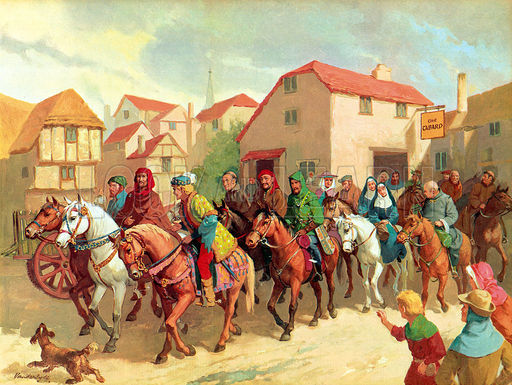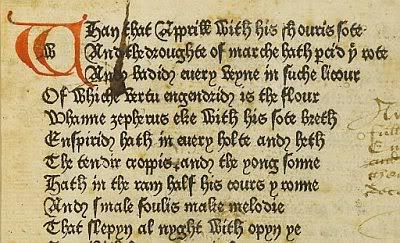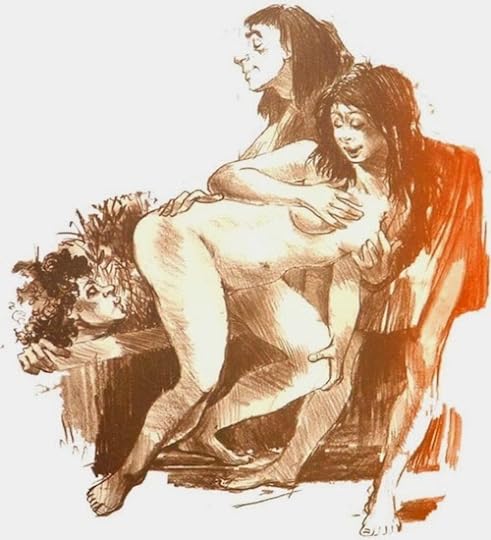What do you think?
Rate this book


The procession that crosses Chaucer's pages is as full of life and as richly textured as a medieval tapestry. The Knight, the Miller, the Friar, the Squire, the Prioress, the Wife of Bath, and others who make up the cast of characters -- including Chaucer himself -- are real people, with human emotions and weaknesses. When it is remembered that Chaucer wrote in English at a time when Latin was the standard literary language across western Europe, the magnitude of his achievement is even more remarkable. But Chaucer's genius needs no historical introduction; it bursts forth from every page of The Canterbury Tales.
If we trust the General Prologue, Chaucer intended that each pilgrim should tell two tales on the way to Canterbury and two tales on the way back. He never finished his enormous project and even the completed tales were not finally revised. Scholars are uncertain about the order of the tales. As the printing press had yet to be invented when Chaucer wrote his works, The Canterbury Tales has been passed down in several handwritten manuscripts.
504 pages, Paperback
First published January 1, 1400

WHAN that Aprille with his schowres swoote
The drought of Marche hath perced to the roote,
And bathud every veyne in suich licour,
Of which vertue engendred is the flour:



Right so bitwixe a titlelees tirauntIf one ever took a look at my disaster of a degree progress report and skimmed down to the very bottom, they'd find the ten upper division English course I took/am taking in order to finally get my BA. What experimental woman's lit, postcolonial short stories, Milton, and the seven various others have in common is an adamant refusal to partake in the 1900s/American/20th century fill in the blanks that gestures at a general education and enacts little more than a cold and miserable hierarchy. In this brave new modernity of mine, what I am utterly sick of is the pretense pilled on pretense of This Is How It Is and This Is How It Has Always Been and This Is How It Will Always Be that chokes every field with the White Male Name. If you would claim science exempt, give up Newton and go back to the Golden Age of Islam and even further beyond to Greek-termed Persia and first-university South Asia and Morocco. I take a similar path through literature, as what's the use of an increasing glut of literature since the European colonial gaze unfolded if one insists that on the increasingly straight and narrow? The benefit of this is, the more you go back to that Middle English and that Old English and blood and bone not caught up in the people dead for centuries before one corner of the world thought to start calling them "white", the more it all starts to all fall apart. My interest lies in sharp edges of things that common sense would decry as nonexistent. Here, there be monsters.
And an outlaw or a theef erraunt,
The same I seye: ther is no difference.
To Alisaundre was toold this sentence,
That, for the tirant is of gretter myght
By force of meynee for to sleen dounright,
And brennen hous and hoom, and make al playn,
Lo, therfore is he cleped a capitayn;
And for the outlawe hath but smal meynee,
And may not doon so greet an harm as he,
Ne brynge a contree to so greet mescheef,
Men clepen hym an outlawe or a theef.
Whan that Aprille with his shoures soote,
The droghte of March hath perced to the roote,
And bathed every veyne in swich licóur
Of which vertú engendred is the flour;
Whan Zephirus eek with his swete breeth
Inspired hath in every holt and heeth
The tendre croppes, and the yonge sonne
Hath in the Ram his halfe cours y-ronne,
And smale foweles maken melodye,
That slepen al the nyght with open ye,
So priketh hem Natúre in hir corages,
Thanne longen folk to goon on pilgrimages,
And palmeres for to seken straunge strondes,
To ferne halwes, kowthe in sondry londes;
And specially, from every shires ende
Of Engelond, to Caunterbury they wende,
The hooly blisful martir for to seke,
That hem hath holpen whan that they were seeke.


By God! if women hadde written stories,What she��s saying is that men control the narrative; when it’s her turn to speak she has a lot to say.
As clerkes han withinne hire oratories,
They wolde han writen of men moore wikkednesse
Than all the mark of Adam may redresse.